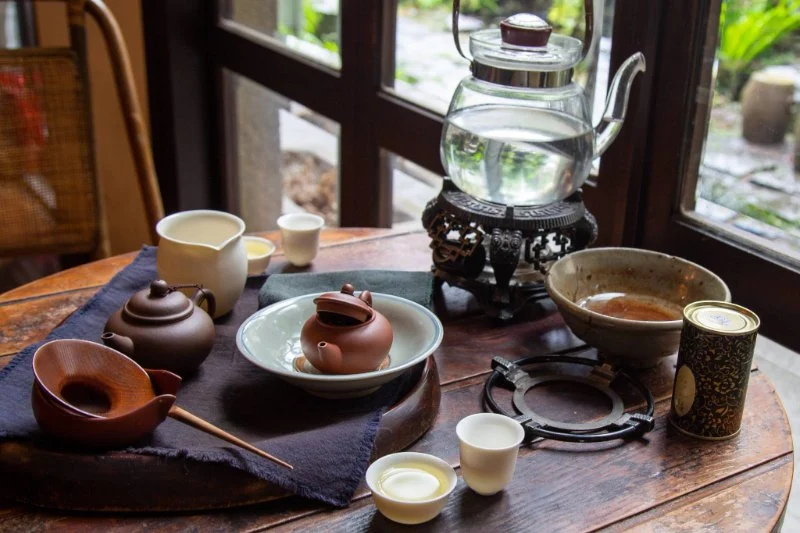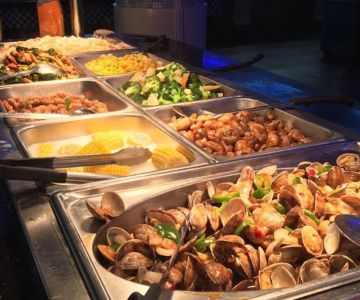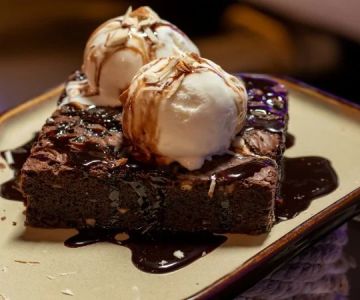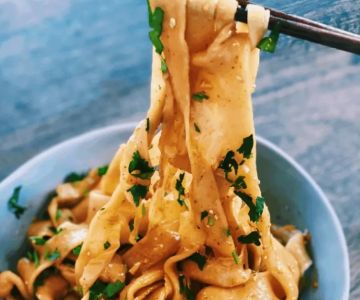
- Introduction to Tea Houses
- The Historical Importance of Tea Houses
- Tea Houses as Preservers of Traditional Tea Culture
- Modern-Day Tea Houses and Their Continued Importance
- Visiting Tea Houses and Experiencing Traditional Tea Ceremonies
Introduction to Tea Houses
Tea houses have long been an integral part of tea culture, serving not just as places to enjoy a warm cup of tea, but also as cultural hubs where traditions and customs are passed down through generations. Whether in China, Japan, or the UK, tea houses are designed to create an environment where patrons can experience the deep cultural significance of tea. These establishments, often deeply rooted in history, provide a space where people can come together to slow down and appreciate the art of tea drinking.
The Historical Importance of Tea Houses
Tea houses have been around for centuries, serving as gathering spots for intellectuals, artists, and common folk alike. In China, for example, tea houses have been essential since the Tang Dynasty, providing spaces where tea was not only consumed but also celebrated through ceremonies and poetry. Tea houses have historically been places of reflection and community, where tea drinking was elevated to an art form.

Dubl Twister Ice Cream / dubl twister ice cream
New YorkNew York CountyNew York
1443 York Ave, New York, NY 10075, USA
1. Tea Houses in Ancient China
During ancient times, Chinese tea houses were places where people could experience the full ritual of tea brewing, which often involved elaborate tea ceremonies. Tea culture in China evolved into an expression of refinement, and these establishments became crucial in the cultivation of the "tea master" tradition, where knowledge of tea preparation and the art of serving tea was revered.
2. Tea Houses in Japan
In Japan, tea houses are closely associated with the Japanese Tea Ceremony (chanoyu), a practice that emphasizes aesthetics, manners, and a sense of tranquility. This tea ceremony, often conducted in specially designed tea rooms within tea houses, became a formal ritual that embodied the principles of Zen Buddhism. The simplicity and elegance of this practice have kept tea houses central to Japanese cultural life.
Tea Houses as Preservers of Traditional Tea Culture
Tea houses are crucial in preserving traditional tea culture. While tea production methods and consumption practices may evolve with time, tea houses serve as the custodians of ancient tea traditions. Here are some key ways they contribute to the preservation of tea culture:
1. Maintaining Ancient Tea Rituals
One of the primary roles of tea houses is to maintain traditional tea ceremonies and rituals. Whether it’s the Japanese tea ceremony or the Chinese gongfu tea ceremony, these rituals are carefully upheld and passed down to new generations. Tea houses often host regular events or offer classes where people can learn and participate in these sacred rituals, keeping these practices alive and relevant.
2. Showcasing Regional Tea Varieties
Tea houses are also a space for people to explore and appreciate the wide variety of teas from different regions. Whether it’s a rare Chinese oolong, a Japanese matcha, or an Indian Darjeeling, tea houses are instrumental in educating visitors about the diversity of tea. By showcasing regional tea varieties, tea houses help keep knowledge about the sourcing, processing, and unique characteristics of each tea variety alive.
3. Providing a Community Space for Tea Enthusiasts
Tea houses have always been community-centered, providing a space where like-minded tea enthusiasts can gather and share their love for tea. This sense of community is vital for keeping tea culture vibrant. Tea houses often become venues for tea tastings, cultural discussions, and educational workshops, fostering a community where tea lovers can exchange knowledge and experiences.
Modern-Day Tea Houses and Their Continued Importance
In today’s fast-paced world, the role of tea houses remains as relevant as ever. While modern tea houses may incorporate new elements like contemporary designs and innovative tea blends, they still hold onto the traditions that make them culturally significant. Here’s why they continue to thrive:
1. A Retreat from the Modern World
Modern tea houses often provide an escape from the hustle and bustle of everyday life. With their serene, calming environments, they offer a space for people to unwind, slow down, and connect with a time-honored tradition. In an age dominated by technology and rapid changes, tea houses provide a respite—a place to disconnect and engage in a practice that’s been around for centuries.
2. Promoting Wellness and Mindfulness
The act of preparing and drinking tea has always been closely tied to wellness and mindfulness. Tea houses today embrace this concept, offering spaces that encourage patrons to embrace relaxation and reflection. This focus on well-being is appealing to many in today’s world, where mindfulness practices and self-care are gaining widespread attention.
3. Global Reach of Tea Culture
Tea houses are no longer confined to just China and Japan. Across the globe, cities such as London, New York, and Los Angeles now feature modern tea houses that blend traditional practices with local influences. These tea houses introduce the world to the cultural richness of tea, preserving its history while allowing it to evolve into something universally enjoyed.
Visiting Tea Houses and Experiencing Traditional Tea Ceremonies
If you’re interested in experiencing traditional tea culture firsthand, visiting a tea house is the best way to do so. Many tea houses offer interactive experiences where visitors can watch or participate in tea ceremonies, learn about different brewing techniques, and enjoy a curated selection of teas. Whether it’s an intimate, personal experience or a large group gathering, visiting a tea house offers an immersive cultural experience that celebrates the art of tea.
To discover the best tea houses near you, or to explore the history and culture behind traditional tea ceremonies, Dine Droop offers detailed guides and recommendations. Whether you’re new to tea or a seasoned enthusiast, our platform can help you find the perfect tea house to experience these rich traditions.








 Anthony Francos Pizza4.0 (433 reviews)
Anthony Francos Pizza4.0 (433 reviews) Curry Flavor4.0 (197 reviews)
Curry Flavor4.0 (197 reviews) Dona Mercy5.0 (2 reviews)
Dona Mercy5.0 (2 reviews) Leo's Italian Restaurant4.0 (32 reviews)
Leo's Italian Restaurant4.0 (32 reviews) Island Wings0.0 (0 reviews)
Island Wings0.0 (0 reviews) Dolce Pizzeria & Restaurant4.0 (439 reviews)
Dolce Pizzeria & Restaurant4.0 (439 reviews) Exploring Sushi Restaurants That Source Ingredients Responsibly and Sustainably
Exploring Sushi Restaurants That Source Ingredients Responsibly and Sustainably Discovering American Restaurants That Incorporate Seasonal Local Ingredients
Discovering American Restaurants That Incorporate Seasonal Local Ingredients Discovering Vegan Restaurants That Use Seasonal Ingredients to Inspire Menu Items
Discovering Vegan Restaurants That Use Seasonal Ingredients to Inspire Menu Items Exploring Brunch Restaurants That Offer Unique Cocktail Menus – Best Places to Visit
Exploring Brunch Restaurants That Offer Unique Cocktail Menus – Best Places to Visit How Ice Cream Shops Are Pioneering Seasonal and Global Flavor Combinations
How Ice Cream Shops Are Pioneering Seasonal and Global Flavor Combinations How Middle Eastern Restaurants Are Innovating Traditional Dishes With Modern Presentation
How Middle Eastern Restaurants Are Innovating Traditional Dishes With Modern Presentation